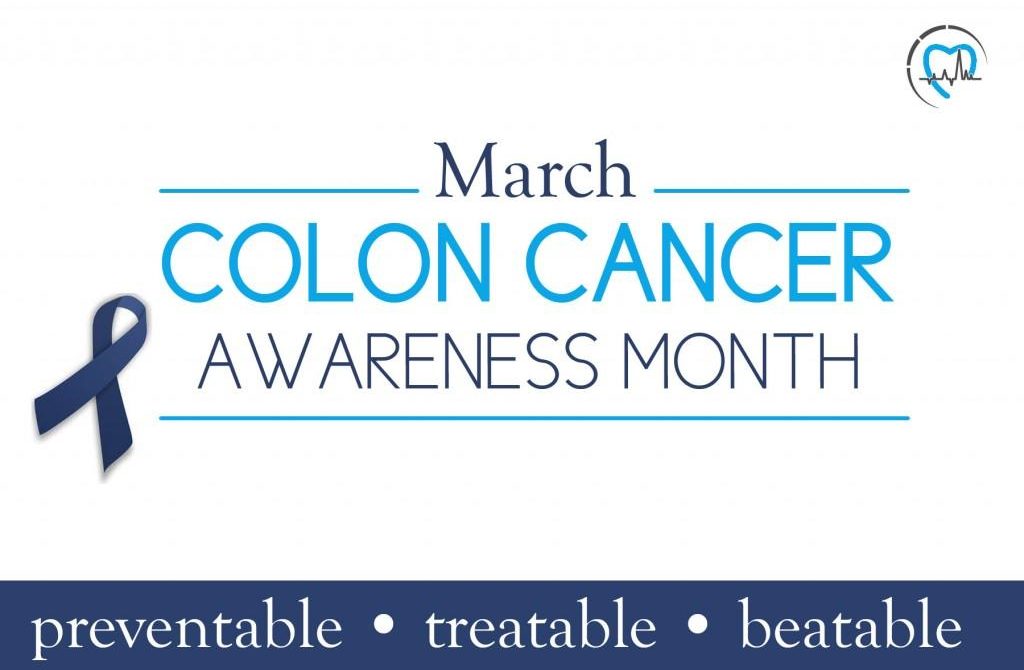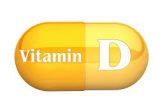
Do you know that lifestyle factors such as poor diet, physical inactivity, alcohol and smoking cause 80% of colorectal or colon cancer? Inherited genes are only responsible for about 10% of all colon cancer. March is colorectal cancer awareness month, so it’s a good time to learn about it and take steps for prevention.

What is Colon cancer?
Colorectal cancer is cancer that develops in the colon or rectum. Your colon and rectum are in the lower part of your digestive tract. Food passes through the stomach and small intestine into the colon during digestion. Your colon absorbs nutrients and water and stores the waste matter as your stool. The stool then moves into the rectum where it leaves the body.
A polyp is a small growth that develops on the inner lining of the colon or rectum. Over time polyps can become cancer. Finding and removing polyps prevents colorectal cancer.
What puts you at risk for Colon Cancer?
The natural process of aging together with a combination of environmental, lifestyle, and inherited factors trigger many cancers.
Some specific things put you at risk for colorectal cancer:
- Older age – people older than 50 years are at higher risk for colon cancer. It can develop at a younger age but less frequently
- A family history of colon or rectal cancer (parent, sibling, or child) – Up to 15% of people with colon cancer have a family history
- If you’ve had cancer of the colon, rectum or ovary or colorectal polyps
- If you’ve inherited genes that put you at risk for colorectal cancer
- If you have a chronic inflammatory bowel disease such as Ulcerative Colitis or Crohn’s Disease (for 8 years or more)
- Diabetes – people with insulin resistance are at higher risk for colon cancer
- Low fiber, high-fat diet – eating a lot of red meat or processed meats such as hot dogs
- A sedentary lifestyle – being physically inactive increases your colorectal cancer risk
- Smoking
- Having three or more alcoholic beverages per day
- Being obese
How do you know whether you have Colon cancer?
Like many cancers, early colon cancer has no symptoms. Signs and symptoms often mean that the condition is advanced

Preventing Colon cancer
Colorectal cancer is one of the most preventable cancers, and screening is vital to prevention. To screen is to do medical tests to check for the POSSIBLE presence of colon cancer even though you have no signs or symptoms. Your doctor can screen to detect cancer early and perhaps find polyps that can be removed before they develop into cancer. Cancer that’s detected early is often curable.
Screening tests for Colon cancer:
- Fecal Occult Blood Tests – detects small amounts of blood in feces that can’t be seen with the naked eye
- Stool DNA Test – detects small amounts of blood in stool and nine DNA biomarkers in three genes linked with colorectal cancers and precancerous polyps
- Colonoscopy – a tiny camera in a flexible tube is passed into your rectum to inspect the inside of the entire colon
Here are other crucial changes you can make to prevent Colon cancer:
- Eat healthy food – a high fiber, low-fat diet with a variety of fruits, vegetables, and whole grains. Avoid processed meats and eat less red meat. Colorectal cancer is a cancer of the digestive tract so it stands to reason that what you eat can either increase your risk or reduce your chances of developing the condition
- Exercise regularly – for about 30 minutes at least five times a week
- Maintain a healthy weight
- Drink alcohol in moderation
- Stop smoking
Remember colorectal cancer is quite preventable. If you’re at risk, see your doctor immediately for screening tests regardless of your age and begin to take steps immediately to improve your diet, maintain a healthy weight and exercise regularly.


Tim Yaotome
Thanks for the tip that poor diet, physical inactivity, alcohol, and smoking can cause 80% of colon cancers. This made me worried about my dad, who stopped taking care of himself since mom died. To keep him healthy, I will find a medical clinic with specialists in gastroenterology. With their help, they can monitor his health. Also, their work can help reduce the chances of him getting this disease too.